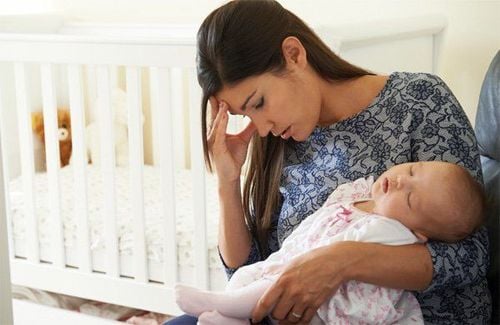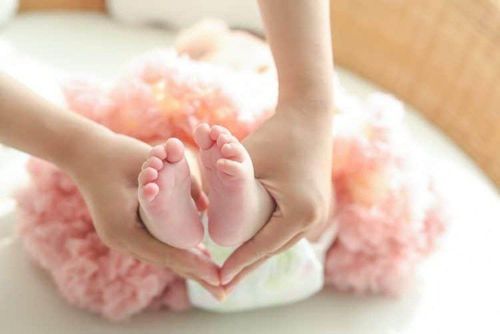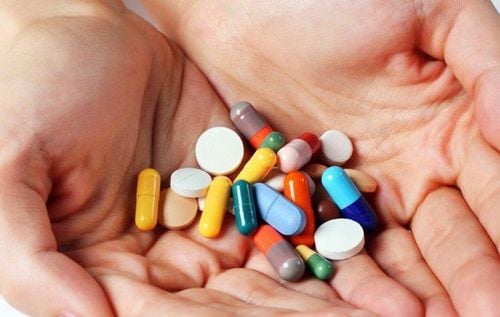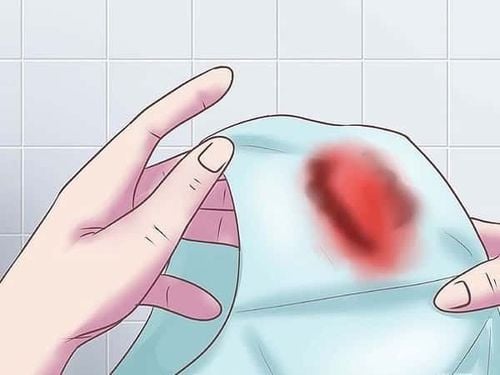This is an automatically translated article.
The article is professionally consulted by Master, Doctor Le Phuc Lien - Urologist - Department of General Surgery - Vinmec Nha Trang International General Hospital. The doctor has more than 12 years of experience in the field of urology and specialized urology.Postpartum urinary retention is one of the common complications in pregnant women. This is the inability to urinate despite the urge to urinate. About 13.5% of women after giving birth have this condition.
1. Postpartum urinary retention
Urinary retention is a disorder of the urinary tract, presenting symptoms of having to urinate but unable to urinate.Urinary retention after childbirth is one of the common complications, especially for mothers giving birth vaginally. Postpartum urinary retention is not dangerous, but it greatly affects the mother, causing motor and sensory discomfort.

Bí tiểu sau sinh con là một trong những biến chứng thường gặp ở phụ nữ mang thai.
2. Causes of urinary retention after childbirth
There are many causes of urinary retention after birth such as:
During labor, when the fetal position is low, the fetal head presses against the bladder neck or urethra, causing urine stagnation. When stretching a lot, it loses tone and contracts the bladder neck muscles. In the case of postpartum incision and perineal stitches, the stitches are swollen and painful, making the mother not dare to strain while urinating for fear of pain. After delivery, the bladder is not sensitive to stimulation when the urine is full, causing urinary retention. In addition, when urinary retention, the movement of urination many times causes cystitis. Causes of urinary retention after cesarean section:
Anesthesia, anesthesia: Bupivacaine + Fentanyl spinal anesthetic (opioid group) has the rate of causing urinary retention 10-15% after surgery. Therefore, you must wait patiently until the effect of the drug wears off. Nervous too nervous. Injury due to rough procedure, bladder contusion causing urinary retention. For example: When placing a Foley urinary catheter with a balloon pump but not properly fixed to the thigh, when the urine is full, the catheter is stretched, causing compression and edema of the bladder neck, leading to urinary retention. In some cases, students are allowed to practice withdrawing the urinary catheter without proper technique, failing to deflate the balloon before withdrawing, pulling even the undeflated balloon, causing injury, bladder neck edema, etc.

Thần kinh quá lo lắng cũng có thể dẫn đến bí tiểu sau sinh mổ.
3. Prevention
To prevent urinary retention after giving birth, mothers should note:
Early mobilization. Drink a lot of water. Do not hold urine due to postpartum pain. Encourage the mother to urinate on her own should not be afraid of pain for the perineal stitch. Practice sitting to urinate in a natural sitting position. Wash or soak the genital area with warm water (flush the vulva with warm water), gynecological washes such as Gynofar, Lactacyd FH. Always keep the vulva area dry. Avoid perineal wound infection. Adequate nutrition helps to restore health after giving birth. Postpartum urinary retention is a common complication that is not harmful to the mother. However, it causes feelings of pain and discomfort, significantly affecting the mother after giving birth. Therefore, to prevent urinary retention after childbirth, mothers need to exercise early, drink plenty of water, do not hold urine, practice sitting in a natural position and have adequate nutrition to help restore health after birth. . When you see abnormal signs after giving birth, you should immediately notify your doctor for timely intervention.
Resident doctor Le Phuc Lien has more than 12 years of experience in the field of urology and specialized urology, successfully performing many high-technologies such as urological endoscopy, female urology, urodynamics, bladder cystoscopy. nerve. Currently, he is a Urologist at the Department of General Surgery, Vinmec Central Park International General Hospital.
Please dial HOTLINE for more information or register for an appointment HERE. Download MyVinmec app to make appointments faster and to manage your bookings easily.













